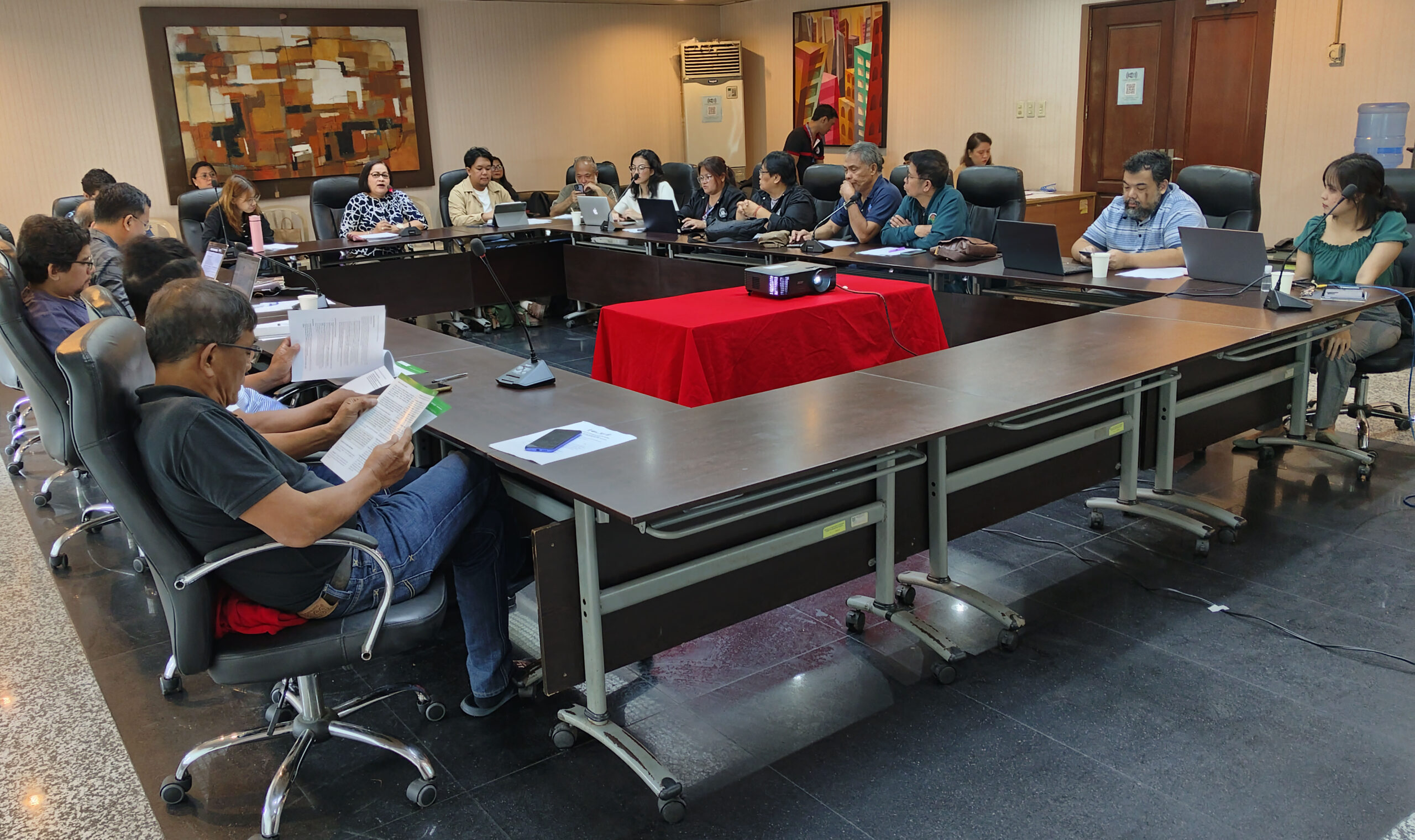
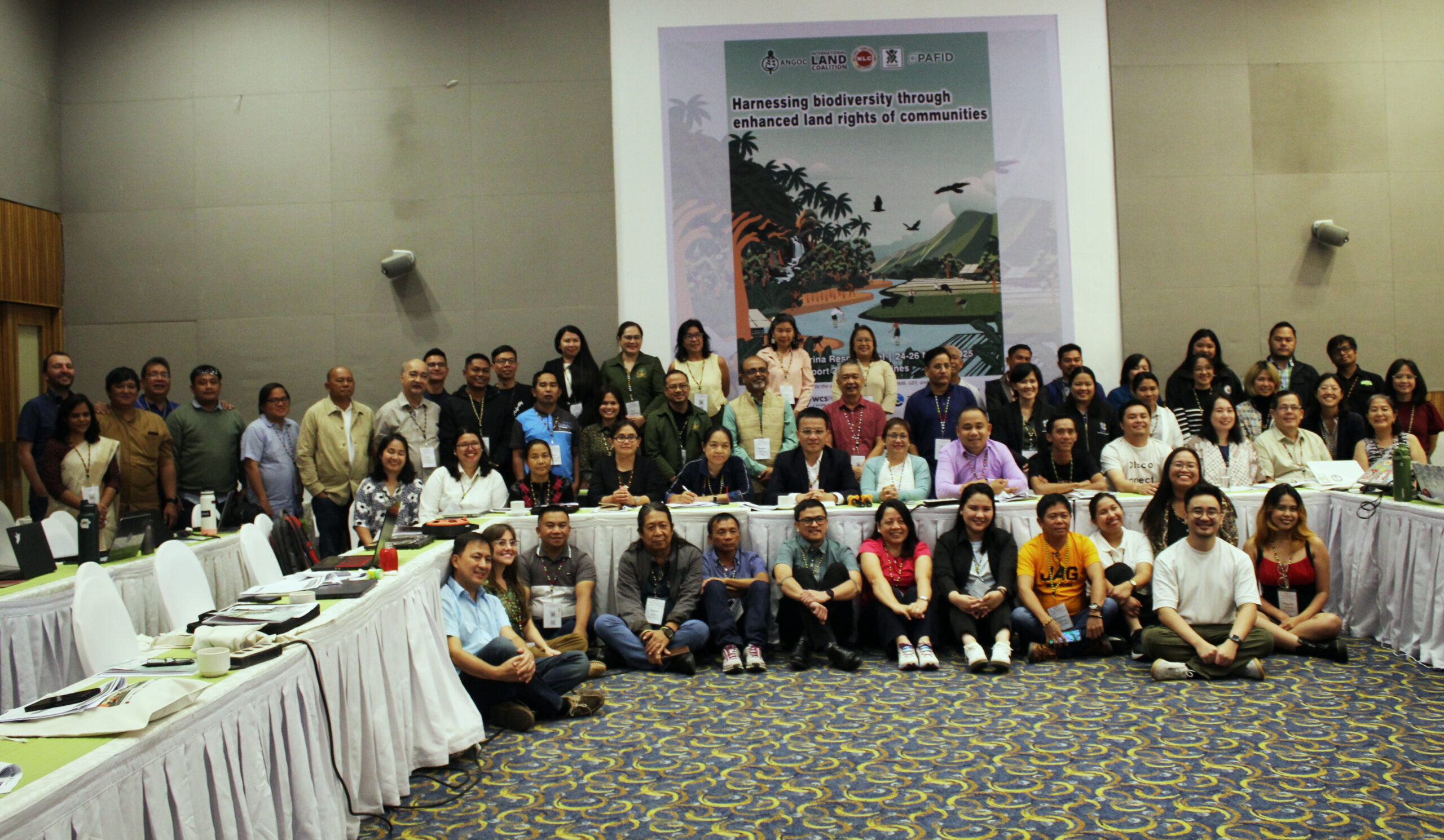

Biodiversity and community land rights are intrinsically linked. The Kunming-Montreal Global Biodiversity Framework (KMGBF), Paris Agreement, and other international frameworks highlight the importance of land rights and indigenous and traditional knowledge for reversing biodiversity loss, restoring degraded ecosystems and addressing climate change.
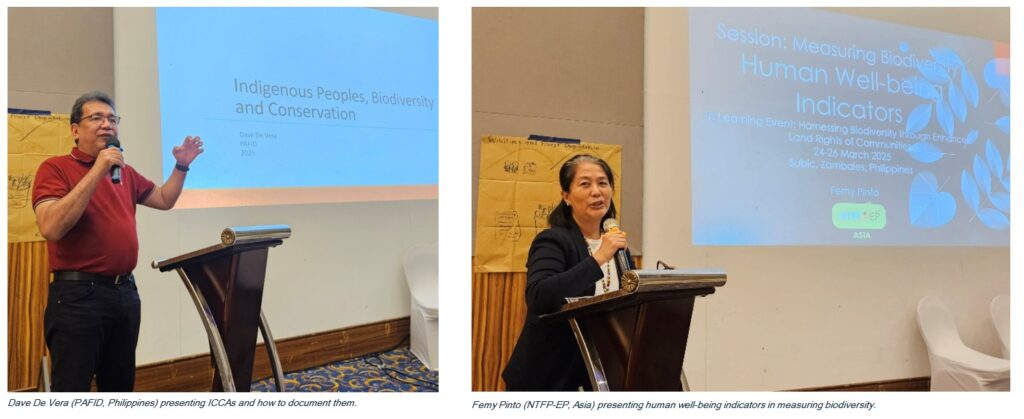
Recognizing the above, the National Land Coalition-Philippines (NLC-Philippines) and the International Land Coalition (ILC), in partnership with the Kaisahan tungo sa Kaunlaran ng Kanayunan at Repormang Pansakahan (KAISAHAN), Philippine Association for Intercultural Development (PAFID), and the Asian NGO Coalition for Agrarian Reform and Rural Development (ANGOC), convened a regional Learning Exchange, “Harnessing biodiversity through enhanced land rights of communities,” on 24-26 March 2025 at Lighthouse Marina Resort in Subic, Philippines.
The event gathered 68 representatives from Asian civil society organizations, ILC members, government institutions, and local communities to deepen their understanding on the linkage of land rights and biodiversity; share the initiatives in the Philippines in localizing the Philippine Biodiversity Strategic Action Plan (NBSAPs); orient participants on key frameworks and practical tools on biodiversity; and, learn from community initiatives on biodiversity protection and conservation.
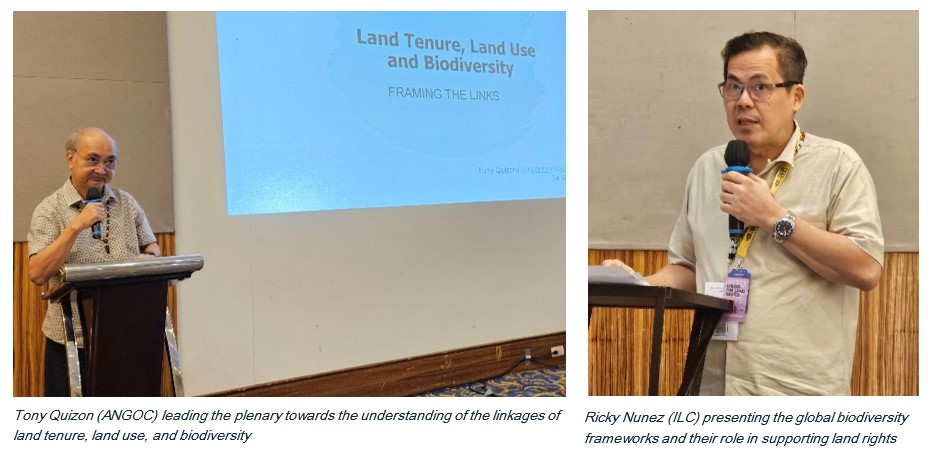
The discussion started with exploring the connection between tenure security and biodiversity, delving as well into the challenges associated to these concepts. Tony Quizon (ANGOC) and Ricky Nuñez (ILC) emphasized that land tenure security is a key factor that encourages people to protect and sustainably manage larger landscapes, forests, and farm systems on which their homes and livelihoods depend. It underpins the ability of communities to sustainably manage their environments, supporting both biodiversity and cultural continuity. Conversely, without tenure security, conservation cannot succeed.
The Kunming-Montreal Global Biodiversity Framework (KMGBF) was highlighted, emphasizing the importance of recognizing indigenous land governance. Discussions underscored the importance of integrating IPs, women, youth, and local communities into conservation efforts.
National biodiversity strategies across Asia were shared, including the implementation of NBSAPs in selected Asian countries. Nepal made significant progress in meeting biodiversity targets. Malaysia has developed its National Policy on Biological Diversity 2022-2030 but emphasized the need for a shift from exclusionary conservation practices to community-led initiatives. The Philippines aligned its biodiversity strategies with local priorities. In Thailand, fragmented governance in remains a challenge, limiting the engagement of communities in the implementation of its NBSAP.

The session on localizing the Philippine Biodiversity Strategic Action Plan (PBSAP) underscored deep interconnection of IPs, farmers, and fisherfolk with biodiversity conservation, highlighting their traditional practices as strategies for sustainable management of land and resources. Panelists reflected on the successes and challenges of embedding PBSAP strategies at the
local level, emphasizing the need to navigate bureaucratic hurdles, build multi-sectoral support, and amplify grassroots voices. A notable achievement was the passage of a local ordinance supporting biodiversity efforts, credited to strong awareness campaigns that fostered unity in policy-making. The discussion also stressed the critical role of local champions in integrating PBSAP and Indigenous Peoples’ Biodiversity Strategies and Action Plans (IPBSAP) into governance systems, ensuring long-term sustainability beyond political cycles.
The discussions also emphasized the vital contributions of women and youth in biodiversity conservation, showcasing initiatives like Nepal’s Community Forest User Groups and eco-tourism projects, and the Philippines’ intergenerational efforts in Ikalahan Ancestral Domain and inclusive governance models in Dinagat Islands. Community-driven approaches, such as Local Conservation Areas in the Philippines and Customary Forest protections in Indonesia, were highlighted as critical to achieving biodiversity targets. Practical tools like bird monitoring and ICCA mapping were presented to strengthen community-led conservation efforts, alongside efforts to integrate social dimensions, equitable governance, and indigenous rights into biodiversity strategies.
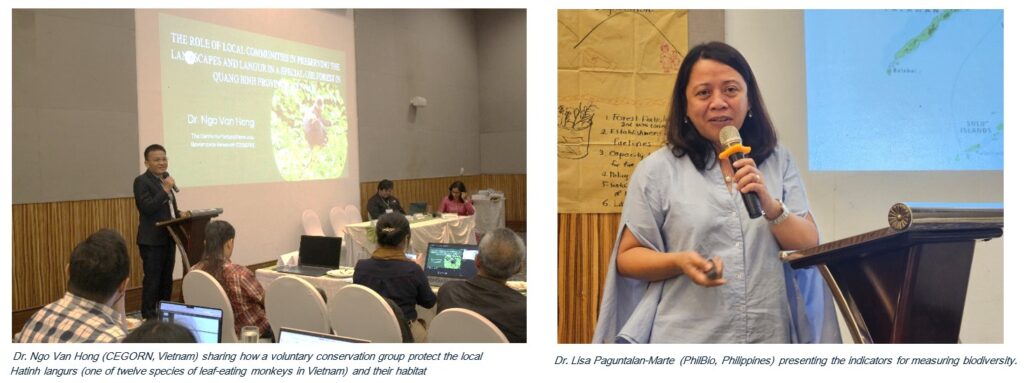
The event concluded with site visits to community-led conservation areas, demonstrating the effectiveness of Indigenous stewardship. In the Philippines, efforts such as Marine Protected Areas, Local Conservation Areas, and ICCAs showcased community-driven approaches. Participants reaffirmed their commitment to tenure security and inclusive biodiversity governance, strengthening cross-country solidarity in mainstreaming land tenure in biodiversity policies.
###
